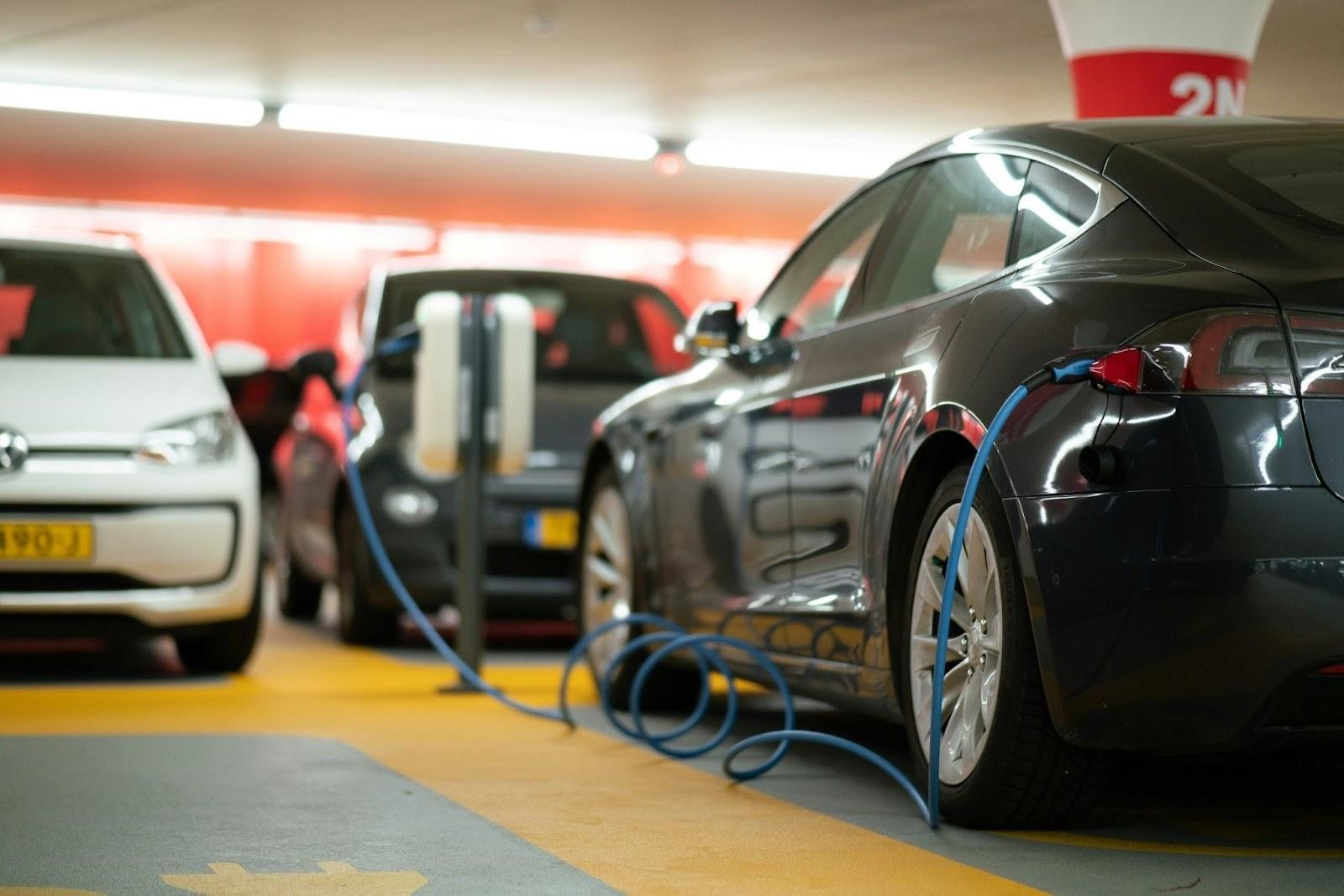Let's face it, the world as we know it is constantly changing, evolving, and growing. More and more people around the globe are getting their hands on electric vehicles not only to help save the planet but also to save money.
With this new trend and electric vehicles becoming more affordable for the average consumer, you may consider installing a charging station at your home or place of business. So just how much does it cost to charge an electric car?
Keep on reading below to find out. This brief electric vehicle charging guide will cover all you need to know about charging your vehicles.
How Much Does It Cost to Charge a Electric Car at a Charging Station?
On average, charging an electric car costs you around $0.30 to $0.60 kWh, a smaller vehicle could cost around $11 to $25 kWh, and larger vehicles can cost between $22 to $45 kWh. The final price of how much it costs to charge your electric car varies depending on the company providing the charging services, type of charger, EV charging level, and the charging port location.
When you charge at home, it can take hours to charge up your vehicle, whereas, at a charging station, it could take only a few minutes to charge.
What Is the Average Cost to Charge an Electric Car?
To calculate the average cost to charge an electric car, you need to first understand the math behind the calculation. To find a more accurate number of how much it costs to charge an electric vehicle, we can use your home electricity bill, for example.
The U.S. Energy Information Administration states that the average household in the United States pays nearly 14 cents per kWh as of May 2021. For a more simplified example, let's say you used 1,400 kilowatt-hours of electricity, and your monthly bill is $100.
At this rate, you pay almost precisely 14 per kilowatt-hours. Of course, most bills aren't nicely clear-cut or perfectly formulated in this way, but for the sake of an example, we can use this logic towards figuring out the cost to charge an electric vehicle.
As a general rule of thumb, an electric vehicle gets approximately three to four miles per kilowatt-hours. So if you divide the total miles your drive each month by three, you would get the approximate number of kWh you would use each month. You will then need to take that number and multiply it by your cost per kilowatt-hour.
For example, if you drive around 540 miles per month, you will use about 180 kWh. Multiply that by the household average of about $0.14/kWh, and you will get $25.20. That is how much you would spend per month to charge your vehicle.
Also read: Which Electric Car Is Best to Buy in 2023?
How Much Does It Cost to Install Electric Car Charger?
The cost to install an electric car charger in your home depends on several different factors, such as the output design and the charging type. It would be best if you also considered the cost of labor and how much someone charges for installing and setting up your electric car charger.
Level One Chargers
Level one chargers are the standard electronic car chargers with 120-volt single-phase AC of up to 16 amps. These are limited to 12 amps and can only deliver up to about 1.9 kW, or about three miles of range per charging hour.
You can use these level one chargers with your standard household wall outlet since 120-volt outlets are more readily available than the other charging options. The cost to install this in your home is between $1,000 to $1,600. The equipment alone costs about $300 to $650 for this type of charger.
Level Two Chargers
Level two chargers provide you with up to 80 amps power rating, which equates to about 19-kW or approximately 60 miles of range per charging hour. You need a dedicated electrical unit of 20 to 100 amps and exclusive charging equipment to install this charger.
Because these chargers provide a bit more power than the level one charger, the cost to purchase the equipment is between $500 and $750. The labor cost to install this charger is between $1,200 to about $2,000.
Level Three Chargers
Level three chargers are not compatible with all vehicles, but they do offer the highest rate of charging per hour. In only 30 minutes, they can provide up to 80% charge. This type of charging station uses a 480-volt unit.
Level three chargers offer the best charging rate per hour, and for a good reason. The equipment for this charger costs about $20,000 to $50,000 for the parts, and the labor could cost around $50,000. If the installation process requires electrical upgrades to your house, it could cost you more than the estimated amount.
Things to Consider Before Installing Your Electric Vehicle Charger
In addition to the type of level charger you need to install, you need to keep a few other considerations in mind. For example, you need to be mindful of the type of plug and connector. Your vehicle type determines the type of plug you need.
If you have a Tesla, you would need to go with the standard Tesla connector. The SAE J1772 charger plug is the most common car plug for vehicles, and you can use it for level one or two charging. For faster charging, you can opt for a CHAdeMO plug.
Safety Concerns
When looking for a charging station, make sure to look for a charging station with a UL certification. The certification indicates that the charger is safe for your use.
When at the charging station, ensure that your children and pets stay away from the connectors and power outlets. This will ensure that they do not sustain any electric shock injuries.
Cost to Charge Electric Car vs Gas
With the average price of gas in the United States hovering around $3.30 per gallon as of the writing of this article, filling up a standard 12-gallon gas tank would cost about $39.60. Of course, we know that smaller vehicles, SUVs, and trucks consume different fuel amounts.
But for the sake of the example, let's say you drive an economical vehicle with an average of 30 miles per gallon. With the standard 12 gallon tank, you would have about 360 miles of driving range each time your fill up your vehicle.
If you drive about 1,000 miles a month, you will need to refuel your tank at least three times. This would cost you about $118.80 a month to fuel a standard compact car each month.
If you drive an SUV or other larger vehicle, your gas cost each month will cost significantly higher. You only pay about $25 per month when you charge up your electric vehicle, saving you $90 a month.
Where to Charge Electric Car?
There are many different locations for you to charge your vehicle throughout the United States. If you prefer to charge at home, you can have someone install the appropriate level charger in your home.
A quick online search for "where to charge electric car near me" should bring up the closest electric car charging stations, depending on where you live.
Also read: Why You Should Buy an Electric Vehicle?
How Much Does It Cost to Charge an Electric Car at Home per Month?
As mentioned earlier, the cost to charge your electric vehicle per month depends on the level charger you have installed in your home and how many kilowatts you use. You can most likely expect to pay about 14 cents per kilowatt with a level one charger.
You may pay less if you have a higher-powered charger because it won't take as long to charge up your vehicle. The final amount will depend mainly on your energy consumption, your energy provider, and your energy consumption.
How Much Does It Cost to Charge an Electric Car Fast?
The answer to this question depends on where you plan on charging your vehicle. If you charge your vehicle at home with a higher-powered charger, you will most likely pay less since the system is already installed in your home.
If you go to a charging station with a higher-level charger, you can expect to pay more for a faster charge. The rates, again, will depend on where you live and the demand for electric vehicle chargers.
How Long Does It Take to Charge?
As mentioned earlier, three different types of charging stations are available that could help determine the time it takes to charge your vehicle. In addition to the level of the charging station, the size of your car's battery will impact the overall charge time.
Level One Charge Time
As you now know, you can purchase and install a level one charger in your garage. Because this outlet only has 120 volts, it will take several hours for your car to charge 100%.
If you have time and don't mind charging your vehicle overnight, this would be the most cost-effective option for you. If you want your vehicle to be at 100%, it can take between 8 and 40 hours, depending on the size of your vehicle's battery. This is an excellent option if you don't drive too frequently or you work from home.
Level Two Charge Time
These types of chargers are more commonly found in public charging stations. Of course, you can have this type of charger installed in your home, but you don't have to. Level two chargers take about five to twelve hours to charge your car completely.
Level Three Charge Time
Level three chargers are way more powerful and faster at charging than levels one and two. Again, you can have this type of charger installed in your home if your vehicle is compatible and if you have the means to afford the equipment and labor costs.
If you need to charge your vehicle in public, your vehicle will need to be below 80% to be charged at the public port. After your car gets to about 80%, it charges slower.
When using a level three charger, you can have your vehicle charged in about fifteen minutes or thirty minutes, depending on the size of your vehicle's battery.
Do You Pay to Charge Your Electric Vehicle at a Charging Station?
There are some free electric vehicle charging stations available in your area, but there aren't as plentiful as those you need to pay for. When compared to charging your vehicle at home, it costs more to charge your vehicle in a public charging station.
Charging your vehicle at home costs about 14 cents per kWh, and it is very unlikely that you would find a charging station that charges less than that. Some car dealerships and grocery stores, like Whole Foods, offer free charging stations.
Of course, with these free incentives come some stipulations. For example, when charging at a grocery store, you can only charge your vehicle for so long, and they typically charge at a slower rate.
Car dealerships may only allow so many people to come to charge their vehicles at their locations. If that, they may only allow specific makes (most likely the makes and models they sell) to come to charge up.
Save On Your Electric Vehicle Costs
Charging your vehicle at a charging station can cost more than charging at home. Of course, the level of the charger you use also determines the overall cost and time needed to charge up your vehicle correctly.
While it is clear that it is cheaper to charge your electric vehicle at a free charging station, work, or at home in most areas of the United States than at home than it is to fill up a gas-powered vehicle, the overall picture is a bit complicated.
Before you buy or lease an electric vehicle, make sure also to take how much you will drive into consideration. If you found this article helpful and wish to know more about electric vehicles, check out our blog today!



